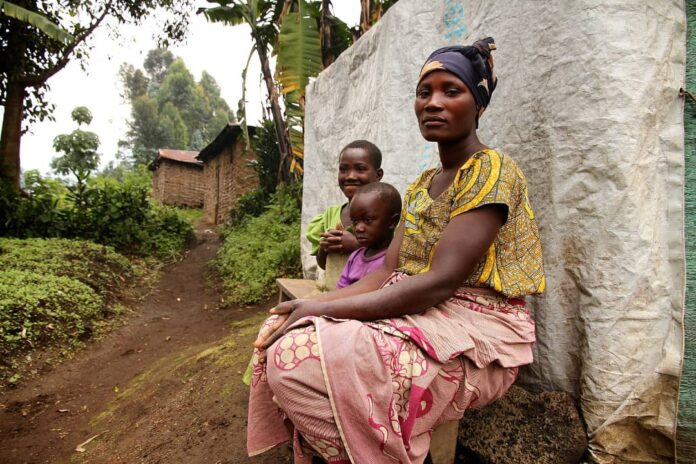
Kampala – Robina Nanfuka’s story is one of resilience and determination. A single mother of two from Kireka, Kazinga, Luwero district, Nanfuka has faced numerous challenges in raising her children alone.
Her marital breakdown was a result of her husband’s infidelity and lack of support for her career aspirations. “He was a soldier, and he would come home only during weekends. He would spend most of his time searching for other women,” Nanfuka recounts.
The final straw came when her husband refused to allow her to pursue a promotion at work. “I was working as a secretary at the LC1 level, and I was offered a promotion to LC3. But my husband refused, saying that I would be away from home too much,” she explains.
The lack of support and trust led to a breakdown in their relationship, and Nanfuka was forced to leave her husband and raise their two children on her own. “I had to rely on my family members to support me and my children. It was a struggle to make ends meet, but I was determined to provide for my children,” she says.
Nanfuka’s story is not unique. Uganda is grappling with a staggering reality. According to Uganda Bureau of Statistics (2023), the number of single mothers has increased from 20% in 2020 to 30% in 2023. The age demographics revealed that the majority of single mothers are between the ages of 18 to 35. This phenomenon has far-reaching implications for women, children, and the nation’s socio-economic development.
For single mothers like Nanfuka, the rising cost of living is a particularly daunting challenge. According to Twaweza’s Sauti za Wanaichi survey 2023, six out of ten citizens (60%) point to the cost of living/inflation as being among the top challenges facing the country, and 62% say it is among the top problems currently facing their household.
The rising cost of living means that single mothers like Nanfuka must work harder to make ends meet.
Kotilda Babirekele, a Gender Officer at the Uganda Media Women’s Association (UMWA), points to societal shifts as a major contributor to the rising number of single mothers. “Today, women are more educated and financially independent, which can lead to conflicts with their partners,” she notes. Babirekele also cites domestic violence, economic disparities, and differing upbringing as other factors leading to marital breakdowns.
To address the root causes of single motherhood, Babirekele advocates for sensitization programs, strengthening of policies like the Domestic Violence Act, and the passage of bills like the sexual offenses bill and the minimum wage bill. “We need to create an environment where women are empowered to make choices and live fulfilling lives,” she stresses.
Mondo Kyateka, Commissioner for Youth at the Ministry of Gender, Labor and Social Development, emphasizes the need for single mothers to access government programs aimed at empowering women. “We have programs like (Generating Growth Opportunities and Productivity for Women Enterprises (GROW), Uganda Women Entrepreneurship Programme (UWEP) and the Youth Livelihood Program (YLP), which can help single mothers gain economic independence and support their children,” he says.
As Uganda grapples with the challenges of single motherhood, it is clear that a comprehensive approach is needed. By addressing the root causes of marital breakdowns, providing economic empowerment programs, and creating a supportive environment, Uganda can work towards reducing the number of single mothers and promoting a more equitable society.


Well written story. So beautiful and insightful
Thanks